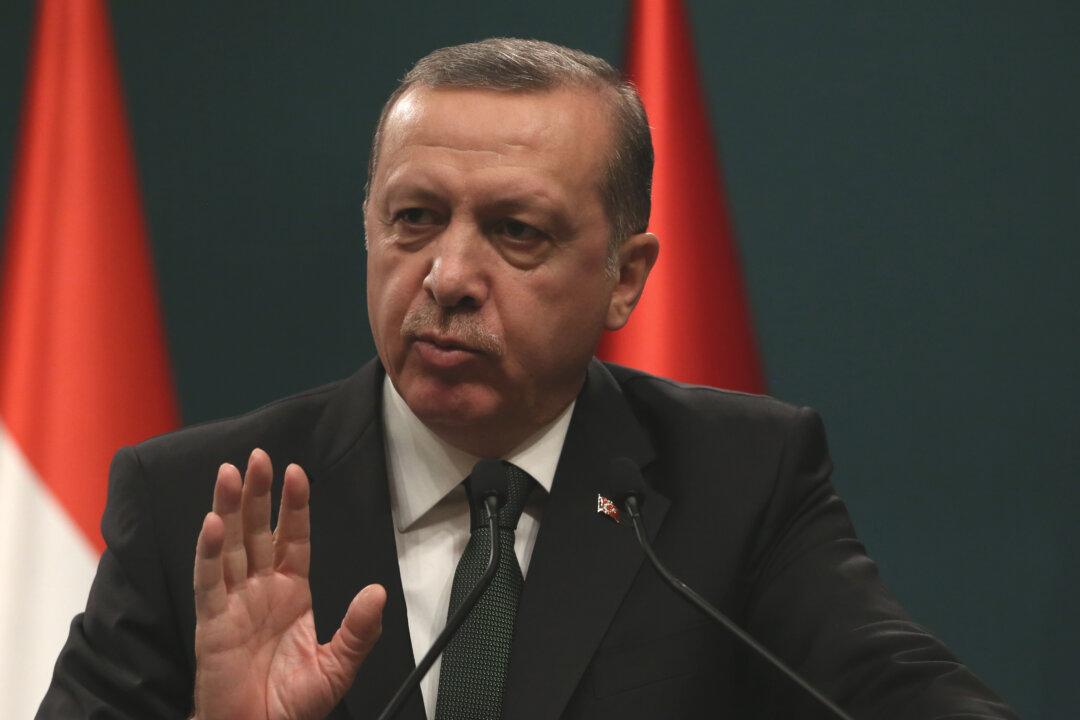ISTANBUL— Two weeks after Turkey’s parliamentary elections, experts agree on one thing: No one really knows what’s going to happen next.
Turkey’s June 7 election left Turkey’s long-ruling Justice and Development Party, known by Turkish acronym AKP, short of the majority it needs to govern alone, meaning it will have to turn to at least one of the three opposition parties to secure its hold on government.
Negotiating such a coalition will be complicated by the vitriol of the campaign, the differences between the four camps and the ambitions of President Recep Tayyip Erdogan, still a dominant force in Turkish politics despite his theoretically neutral role as head of state.
“Neither can I or anyone else make any predictions as to what’s happening,” said Ersin Kalaycioglu, a professor of Turkish politics at Sabanci University in Istanbul.
Sinan Ciddi, the director of the Institute of Turkish Studies at Georgetown University, said he wouldn’t rule out anything either.
“There are as many credible scenarios out there as there are plausible political parties,” he said.
One of the more credible ones involves a deal between Turkey’s ruling party and the hardline nationalist party MHP, which opposes the two-year-old peace process with Turkey’s autonomy-seeking Kurdish rebels. Both parties sit on the right wing of Turkish politics, but such a deal could damage AKP’s relationship with Kurdish voters, a key constituency.
Alternatively, AKP could swallow its pride and strike a deal with its arch-nemesis, the secular CHP. Such a pairing would have an unassailable majority, but the rivalry between the two runs so deep it’s hard to see them acting in tandem.
Perhaps most importantly, all the opposition parties want Erdogan to stay out of politics. It’s hard to see the notoriously outspoken president backing away quietly.
It’s just about conceivable that Turkey’s three opposition parties, including the leftist HDP, could all band together and freeze AKP out of power, a scenario floated by Sukru Kucuksahin, a columnist for the secular-minded Hurriyet newspaper.
But even he acknowledged that was a long shot.
Ilnur Cevik, a columnist at for the pro-government Daily Sabah said coalition-building would be difficult because of “deep-rooted enmities” although he said a tie-up between AKP and the nationalists was the most likely bet. As for an alliance with the secularists, Cevik said, that would leave a bad taste in supporters’ mouth.
“The grassroots don’t want it,” he said.
There are personal rivalries at play too, with some observers warning of a struggle within the ruling party itself. One wild card is former President Abdullah Gul, a co-founder of AKP still popular within the party. Gul has long been seen as an Erdogan ally, but a provocative memoir just published by one of Gul’s former aides reads like a call for a return to frontline politics.
“I can take Turkey back to those days when its star glittered,” the book quotes Gul as saying.
Then there’s the prospect of political mischief. Lawmakers could be enticed to defect from the opposition in return for ministerial appointments, for example. Erdogan’s critics fear his party could deliberately sabotage coalition talks, using the instability to argue for a new election in the hope of clawing back its majority.
“I think that the formation of any government which would perform would be very difficult because of Erdogan’s dominance,” said Lale Kemal, a columnist for Zaman newspaper.
Turks will get an early hint of which way things are going next week, when lawmakers are formally sworn in and elect a speaker. Kalaycioglu, who is critical of Erdogan, said there might just be a chance that the opposition parties can elect a non-AKP speaker. That, he said, would be a sign that Erdogan’s political fortunes were turning after 13 years in power.
“If they can’t do that ... Then I’m afraid it’s the good old authoritarian politics we’re going to be dealing with,” Kalaycioglu said.





